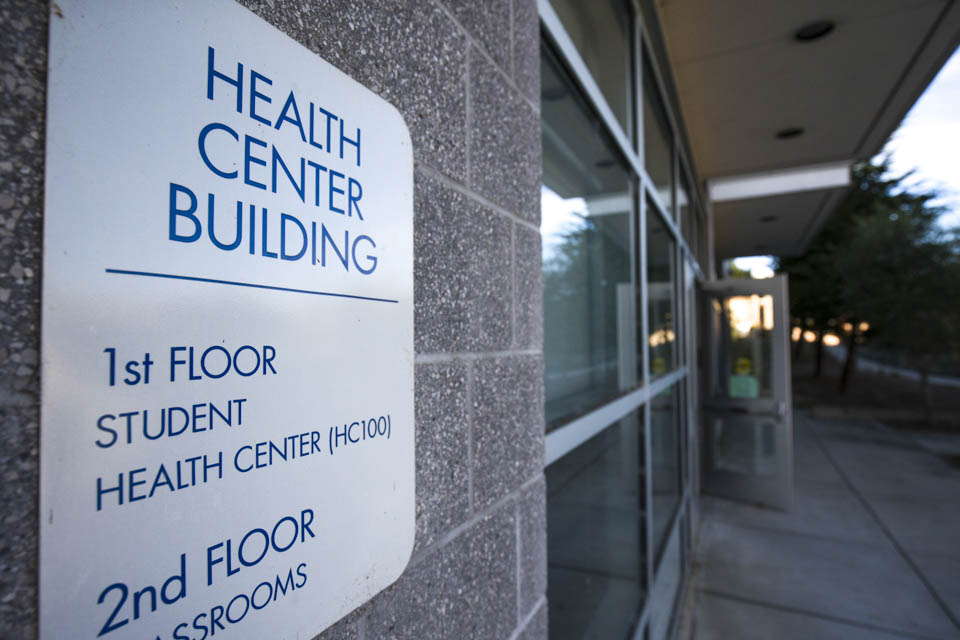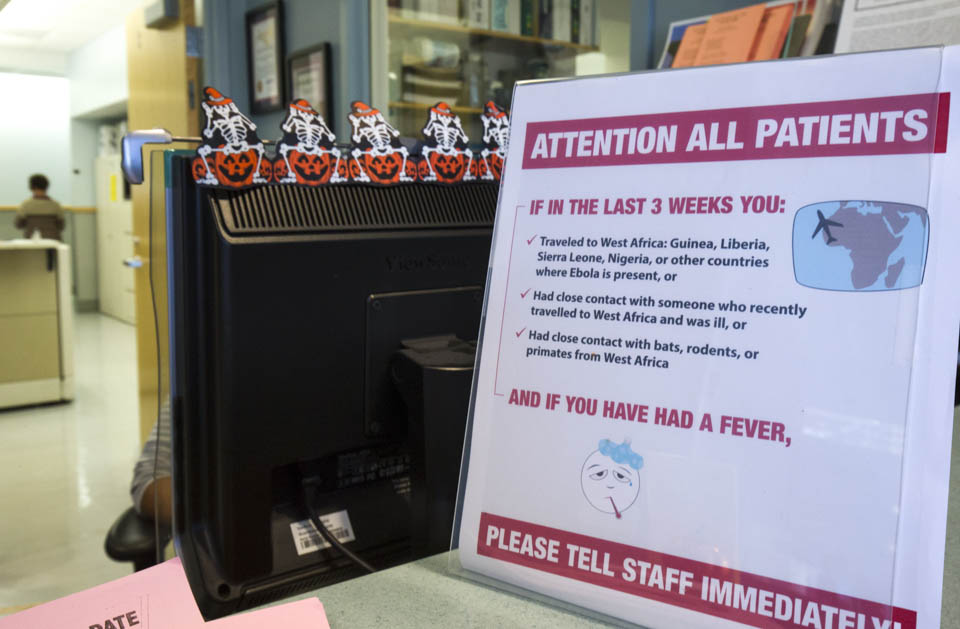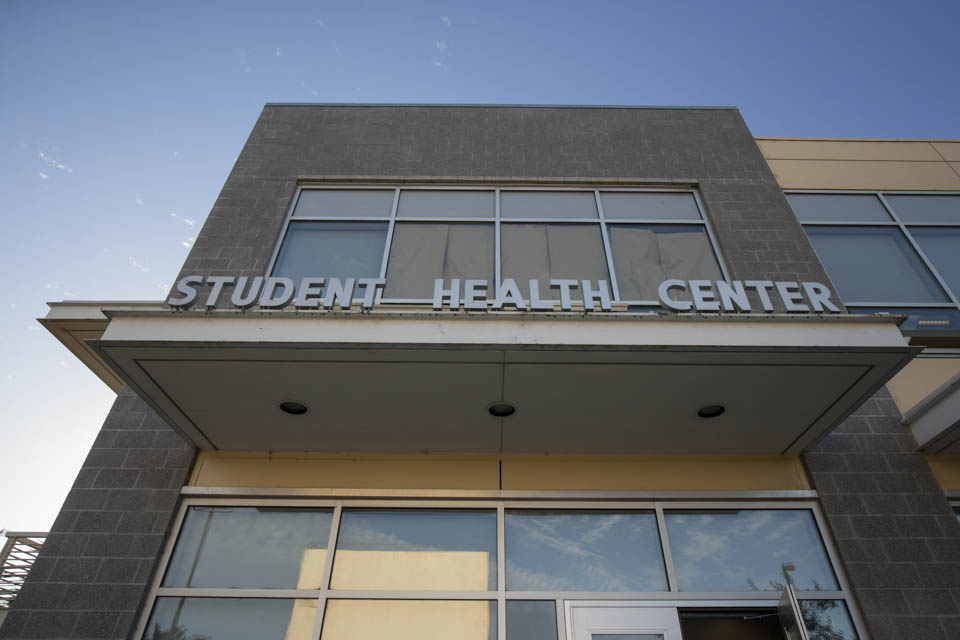Health Center prepares for possible outbreak; gears up for vigorous informational campaign


By Bridgid Skiba
The Guardsman
City College is preparing for the Ebola virus should the disease become a national crisis, according to Becky Perelli, the college’s health center director.
Perelli said she is already in communication with the federal Center for Disease Control and San Francisco’s Department of Public Health for instructions on how to get ready. She said those instructions include creating an isolated area in the center to quarantine any suspected Ebola patient, having the staff use personal protective equipment, providing information to the college community on symptoms related to Ebola, and working closely with the college’s international student office.
In addition, blood samples, according to Perelli, will not be taken, but deferred to the Public Health Department because they will be working directly with the CDC in tracking cases.
The center is already screening students, said Perelli. Also Perelli said, students are being asked, if they have “been in one of the countries that have been impacted by Ebola in the last 21 days or if they cared for someone they know that has the Ebola virus.”
“Even if students do not have a fever, but are not feeling well, they are also asked if they have been in contact or cared for someone with the Ebola virus,” Perilli said.
Perelli said she and the college’s international student counselor are currently in communication about any new information that surfaces and plans to provide general health precaution information to students.
Meanwhile, Perelli said students should strive to maintain a healthy immune system by eating, sleeping and managing their stress to help ward off any infection.
Furthermore, if anyone is having psychological problems due to the Ebola crisis, Perelli advised seeing one of their mental health providers for individual counseling. If it became necessary the Health Center could create group therapy sessions.
In the coming weeks there should be some guidelines on how area clinics will also handle Ebola, Perelli said. Hard copies of information on Ebola are available at the center for students.
Family Nurse Practitioner Jane Ernstthal confirmed that the San Francisco Public Health Department regularly updates the center about any new guidelines. She said Dr. David Stier from the communicable disease unit is currently assessing what kind of protective gear will be used and recommendations to be made.
The Ebola virus originated in West Africa and the hardest regions that have been affected, are Liberia, Sierra Leone and Guinea. Over 10,000 people have contacted the disease and almost 4,922 have died from it, according to the World Health Organization.
Elsewhere, Spain has reported one Ebola virus case and in the U.S. there have been three reported cases, two in Dallas and one in New York. Recently the Ebola virus have taken the life of one victim in Dallas.
As a precautionary measure, the Department of Homeland Security is diverting all West Africa travelers from Ebola outbreak countries in West Africa to go to one of the four airports that has enhanced screening; Washington Dulles, Chicago O’Hare, New Jersey’s Newark and Hartsfield-Jackson in Atlanta international airports. In addition, the United States Peace Corps is evacuating hundreds of its volunteers in the affected countries.
Liberia began closing schools nationwide.
In Sierra Leon, President Ernest Bai Koroma has declared a state of emergency that bans all public meetings and quarantines the homes of Ebola victims.
Although most Californians still appear calm about the Ebola virus outbreak, the scene was a bit dramatic on Oct. 16 at Southwestern Community College in Chula Vista when a student reported she was feeling ill and that she and her sister shared a plane with Amber Vinson, a Dallas nurse who was later diagnosed with Ebola, reported by the Union Tribune San Diego newspaper.
The incident triggered the closure of an entire building for several hours and the quarantine of 50 students for about four hours.
Ebola can only be spread to others after symptoms begin. Symptoms can appear from 2 to 21 days after exposure. Symptoms include fever, headache, diarrhea, vomiting, muscle pain, stomach pain, unexplained bleeding or bruising. People who recover from Ebola virus build antibodies lasting 10 years.
In the meantime, as more information becomes available, Perelli urged city college to check the health center web site at http://www.ccsf.edu//stuhealth for updates about the Ebola virus.
Symptoms of Ebola
- Fever
- Severe headache
- Muscle pain
- Weakness
- Diarrhea
- Vomiting
- Abdominal (stomach) pain
- Unexplained hemorrhage (bleeding or bruising)
Symptoms may appear anywhere from 2 to 21 days after exposure to Ebola, but the average is 8 to 10 days.
Recovery from Ebola depends on good supportive clinical care and the patient’s immune response. People who recover from Ebola infection develop antibodies that last for at least 10 years.
— from the Center for Disease Control
Ebola Hotline
There is a new telephone number in California the public can call for information about the Ebola virus.
The toll-free hotline number is (855) 421-5921. It will be staffed from 8 a.m. to 5 p.m., Monday through Friday, according to the California Department of Public Health (CDPH).


Comments are closed.